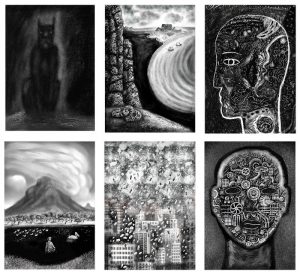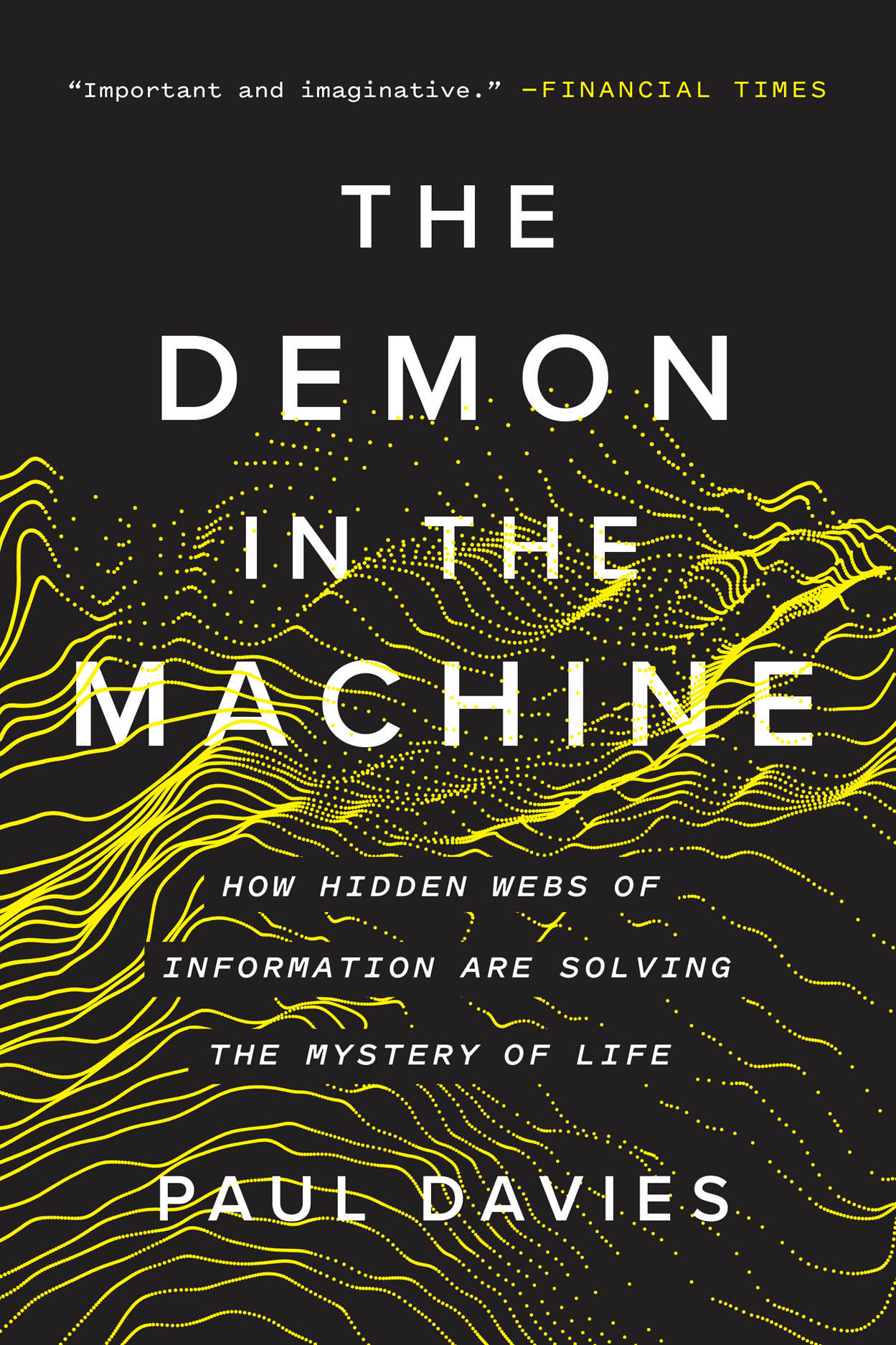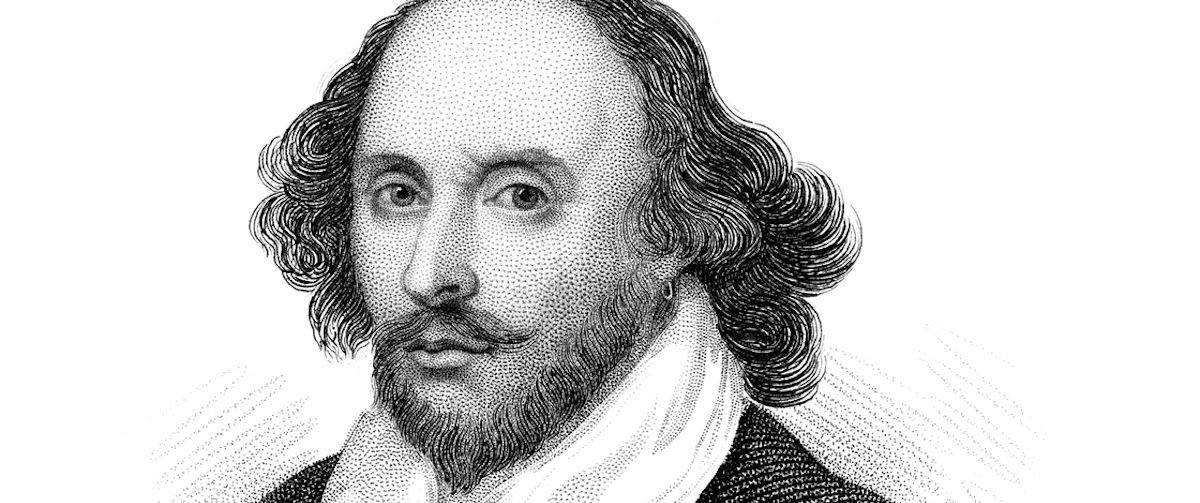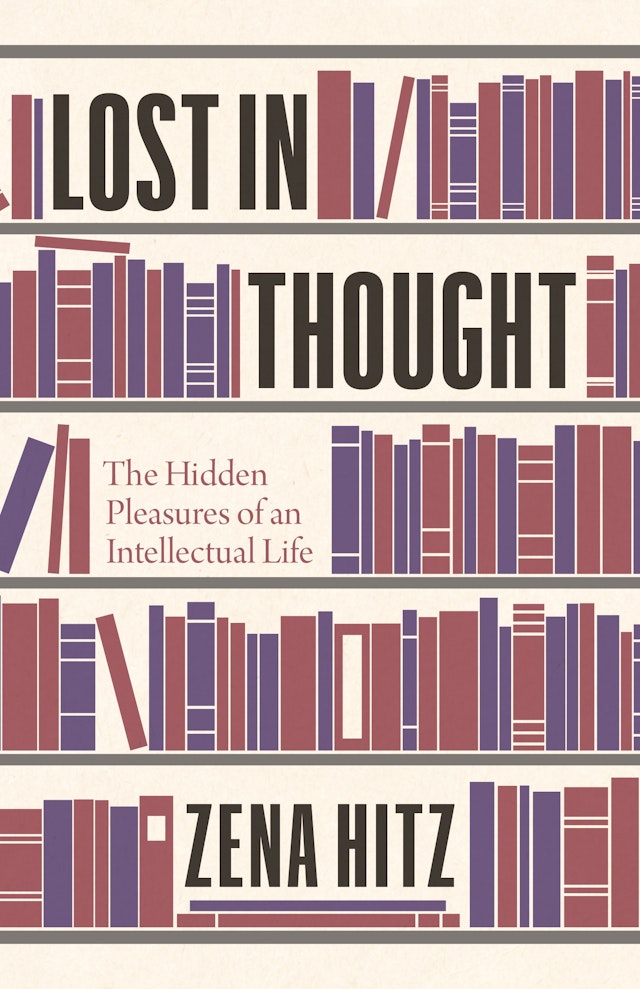It’s strange to think that on the day we began contemplating a roundtable to mark William Shakespeare’s 456th birthday, New York Governor Andrew Cuomo created a containment zone in the city of New Rochelle, formerly the epicenter of the state’s coronavirus outbreak. We were on the eve of the pandemic declaration and approaching the day Broadway would go dark for the first time since 9/11. It became apparent that just as the death toll would rise, so too would there be consequences for the social and cultural fabrics that bind us to one another.
Briefly, the prospect of a conversation centered on the Bard seemed, at best, like a convenient escape. But the following discussion, between five scholars who have devoted their careers situating Shakespeare alongside issues of performance, education, identity, partisanship and more, feels uniquely primed to our moment. It is an essential guide to the possible futures of our collective engagement with theater.
Scott Newstok (author of How to Think Like Shakespeare) moderated this discussion with Emma Smith (This is Shakespeare), James Shapiro (Shakespeare in a Divided America), Jeffrey Wilson (Shakespeare and Trump), and Vanessa Corredera, who is currently at work on a book about adaptations of Othello. I hope you gain as much from their vibrant dialogue as I did.
–Aaron Robertson, Assistant Editor
*
Scott Newstok: I suppose we have to start with our inescapable moment: social distancing policies have led to cancellations of public gatherings, and we’re now all teaching remotely. Artistic companies have gone dark; some worry whether they can survive the coming months.
Are there any precedents for this fraught moment in theater history—whether in the UK, the United States, or elsewhere?
James Shapiro: If plague closures in Elizabethan and Jacobean England hold any lessons for us, it’s that theater is precarious, actors and companies are vulnerable. Many wonderful companies will go under, as talented ones did in Shakespeare’s day. Airlines are sure to get a bailout; I doubt that theaters will, though they will need it just as badly.
Jeffrey Wilson: English theaters closed due to plague outbreaks between 1592 and 1594. So Shakespeare, as he was launching a career in drama, took some time to write poetry. That poetry was very dramatic, and his later drama very poetic. A lot of teachers with campuses closed due to the coronavirus are undergoing a different shift. They’re wondering how their physical classrooms will transfer into online settings. I’ll be very curious to see, six months from now, how our experiences with online teaching transfer back into our physical classrooms.
Emma Smith: It’s hard to imagine an equivalent. I’ve seen people comparing the situation in the UK to the situation during the Second World War, only for our seniors to say that they spent much of the war in theaters and dance halls. I’ve been interested to revisit the old chestnut about early modern companies releasing scripts for publication when the theaters were closed, in light of the National Theatre London and the Royal Shakespeare Company releasing their live screenings during the lockdown.
Vanessa Corredera: I share concern over the vulnerability of the arts during this time, especially since the powers that be (at least for the moment) do not seem interested in what would be a modern version of patronage—by that I mean extending monetary and structural support to the arts. I also think our current situation continues to spotlight issues of access and theater. For instance, many people (my family included) cannot access Shakespeare on the stage on a regular basis because of prohibitions ranging from locale to time to finances.
All of sudden, out of necessity, artistic institutions are turning to streaming, for which I and others are very grateful. This decision opens up a new audience for these performances. What remains to be seen is not only which institutions will be able to weather the storm, but also, how the effects of
JS: I’d only add that King James I provided Shakespeare’s company with “a gift” in “the time of infection” when theaters were closed in early 1604, and then again in 1608, 1609, and 1610. We’ll see if the governments of Donald Trump and Boris Johnson will be as generous to the arts.
JW: Vanessa makes such a good point—this difficult episode has shown that artistic institutions have the desire, ingenuity, and infrastructure to use technology to make art freely accessible to people who aren’t able to make it to a show in New York or London. And wouldn’t it be wonderful to see initiatives like those continue after the current emergency subsides? But that costs money. I suppose the question is: Would it be possible to develop a born-digital version of the Public Theater’s Mobile Unit? A Digital Unit?
JS: I work at the Public Theater and am closely involved with the Mobile Unit, which has had to put its upcoming and dazzling production of
JW: Perhaps one historical analogy could be the world wars of the 20th century. A Google Ngram suggests that Shakespeare’s popularity declined—along with interest in other arts, I have to imagine—during the wartime years. But then the post-war periods saw big rebounds in interest in Shakespeare. Perhaps some post-war theaters might provide models for how today’s theaters can respond to the inevitable thirst for art, reflection, and human connection that will come after social distancing subsides.
ES: That’s so fascinating that interest in Shakespeare declined during those periods. I think that streamed theater productions will be wonderful for those who already include Shakespeare in their cultural life. For new audiences, it might not be as easy to make a space for those amid all the other digital offerings.
Most likely begun in the plague-free summer or autumn of 1605, King Lear was almost surely not written during an outbreak of plague.
SN: You all have probably seen social media posts along the lines of “When Shakespeare was in quarantine, he wrote King Lear” (some citing Jim’s The Year of Lear). There’s cold comfort in recalling that some artists have flourished during prior outbreaks. What other kinds of solace can we derive reading Shakespeare now?
JS: It’s maddening that my book was misread in that way. Most likely begun in the plague-free summer or autumn of 1605, King Lear was almost surely not written during an outbreak of plague (though Lear horrifically calls Goneril a “plague-sore”). What I actually wrote was that the return of plague in late 1606 led to theater closures, and a remarkable season at the Globe—that included
That said, all of Shakespeare’s Jacobean plays, from Measure for Measure through Coriolanus, were written during or not long after yet another outbreak of plague, which struck London repeatedly (if not always as punishingly) from 1603-10.
ES: It’s interesting that “solace” hasn’t really been what we have looked for in Shakespeare—or in literary texts more generally—for some time. I remember A.D. Nuttall saying something in the preface to Why Does Tragedy Give Pleasure to the effect that we used to praise work by saying it was comforting, but now the greatest praise is to say it is discomforting, or something similar.
And now that we need solace, perhaps we will need to return to some less disquieting interpretations of the plays. The great solace I think we could get is the solace of concentrating over something knotty and rewarding. Most people I know feel their ability to focus has been really challenged by the current circumstances.
VC: While I love Shakespeare, I don’t think his works are particularly unique in their ability to provide solace, at least not any more so than other literature that may speak to our affective needs right now. If we are even seeking solace—which Emma interestingly challenges—the beauty of Shakespeare’s language might provide it, but so might the familiarity of the barnyard animals as I read Charlotte’s Web each night to my son, or the complexity people experience upon finally reading that long novel they’ve been putting off.
SN: All of you have worked with digital mediations of Shakespeare, whether Emma’s podcasts, Jim’s recorded lectures, Vanessa’s scholarship on Serial, or Jeff’s extensive online resources. What’s one bit of advice you would offer about teaching remotely?
ES: It doesn’t need to be perfect. And it doesn’t need to be synchronous—that adds stress with technology. Recording things people can play in their own time has worked for me.
VC: I agree with Emma. Also, since we lose community by being asynchronous, lean into online experiences that help form virtual communities. Encourage students to engage with these digital meditations of Shakespeare—like Patrick Stewart reading Shakespeare’s sonnets—and then participate in an online forum, thoughtful debates in comments, or a Twitter discussion (like #ShakeRace).
JW: Vanessa’s point about the possible loss of community is so important. It’s been a big challenge for me. I’ve tried to think very deliberately about how to maintain those connections that students make in the little conversations before class, and the fun we have when we jump into an impromptu performance of a scene. They’re called “plays” for a reason: this is supposed to be fun. I’ve found it vital to spend valuable class time developing those moments and using things like group chats to keep the energy of the course strong.
SN: Parents are improvising schooling at home. Any suggestions for helping children engage with Shakespeare beyond their conventional classrooms?
ES: I admire anyone who is improvising schooling as well as everything else right now, and I’d say, do what’s fun. That might be watching movie versions, or acting out scenes with Lego figures, or learning speeches to show off. I think we need to take whatever advantages there are here, but not to be overambitious!
VC: As someone trying to homeschool and work right now, helping children engage with Shakespeare is not really on my radar! That said, my kindergartener is now around my work much more, which gives me an opportunity to explain who Shakespeare is and what he wrote or to pause a movie or clip and explain more about Shakespeare when he asks about what I’m doing.
JS: One of the initiatives we’re undertaking at the Public Theater is the Brave New Shakespeare Challenge. Every week a new passage will be posted, and we’re encouraging everyone—starting with schoolkids—to share a link with their performance of that speech, poem, or scene. It’ll be fun, and a necessary break from the boredom of quarantine.
VC: James, this sounds like a great initiative!
SN: Shifting gears, Shakespeare is, exceptionally, the only author named in the Common Core. As secondary school curricula increasingly focus on contemporary prose, Shakespeareans find themselves in a discomfiting position: we teach a figure who is sometimes the solitary pre-20th century poet on the syllabus. Which of Shakespeare’s peers do you wish were assigned more often? (I, for one, love assigning Christopher Marlowe’s deceptively simple “
It’s impossible to know what the world will be like in a year or so, once we’re all vaccinated for coronavirus. But it seems likely that theaters will suffer, schools and universities too.
ES: I also love “Come Live With Me”. Texts I enjoy—and my students too—include revenge tragedies by Thomas Kyd (The Spanish Tragedy) or Thomas Middleton (Revenger’s Tragedy). John Webster sometimes makes it onto our high school curriculum in the UK—some A Level students here study Duchess of Malfi.
JS: Emma’s list dovetails with my own. I’d only add John Donne.
VC: Some of my non-Shakespearean favorites to teach are The Spanish Tragedy, almost anything by Marlowe (last term, it was Dr. Faustus), The Duchess of Malfi, and Elizabeth Cary’s The Tragedy of Mariam. I wish they were taught more so that we could see the different ways authors in the Elizabethan and Jacobean eras approach the same topics (revenge, race, gender, etc.), as well as identify the ideological and social concerns to which they return.
SN: Vanessa, you’re writing a book that examines adaptations of Shakespeare’s Othello. How did Shakespeare’s “Moor” come to be “American,” yet also “Global”?
VC: In an essay on teaching Othello, Francesca Royster notes that it has become the play for thinking about race and Shakespeare in America. I think that’s because Othello taps into long-standing American stereotypes about black masculinity that a wide range of scholars on race in America identify. The work of Joyce MacDonald, Ayanna Thompson, and Robert Hornback, for example, shows how burlesque and blackface versions of Othello were key to reifying these stereotypes of black masculinity during Reconstruction. Othello is angry (the Brute), he endangers and then murders white femininity, and by the end of the play, he threatens the white social order (the Nat). I’m interested in thinking about what has to happen to Othello to make it an anti-racist play.
In Citing Shakespeare, Peter Erickson also calls Othello Shakespeare’s global emissary, pointing to the way the play and character speak beyond America. Issues of race, otherness, religion, and anti-blackness aren’t distinctly American problems.
JW: Vanessa, if you were to swap a scholarly hat for a creative one, how might you do Othello to achieve that anti-racist aspect that you describe?
VC: I get asked this question so often, and I think I always provide such haphazard and inadequate answers. My responses reveal my vexed relationship to this play. The most hope for an anti-racist version of Othello, I believe, remains with creators willing to let go of Othello almost entirely. One example is Keith Hamilton Cobb’s American Moor. In the play, the unnamed African American actor auditioning for the role of Othello weaves together the threads of Shakespeare and authority, race in America, and the problems with American regional theater (among other topics) into a provocative, hopeful dialogue with the director he’s auditioning for, and the audience itself.
SN: Jeff, I know that in addition to your recent book Shakespeare and Trump you’ve been thinking about Shakespeare and stigma. Where do you find overlaps across your projects?
JW: Literary works create contact zones for conversations spanning the centuries from the early modern period to today. Shakespeare—as both written text deeply shaped by the classical tradition, and living performance often acted and adapted today—is the most obvious example. Under a banner of better living through historicism, I study the past to better understand today’s ethical and political questions. Sometimes that means historicizing the modern manifestations of early-modern literature, as in Shakespeare and Trump. Other times it means using modern ideas to unpack early-modern texts and traditions, as in the “Stigma in Shakespeare”
VC: Jeff, could you speak to what you see as at odds between historicism and presentism in Shakespeare studies?
JW: Perhaps it goes back to Ben Jonson’s statement that Shakespeare was “not of an age, but for all time.” Shakespeare’s works—as both very old printed texts and plays often performed today—call for both historicism (“of an age”) and presentism (“for all time”). A historicism that doesn’t account for the present is as limited as a presentism that doesn’t account for the past. And this dynamic, which grows organically out of the multi-temporality of Shakespeare, provides a model for other fields of humanistic scholarship.
SN: Jim, you close Shakespeare in a Divided America with a guarded statement about Shakespeare’s future, which, you write, “seems as precarious as it has ever been in this nation’s history.” Have the crisis developments allayed or amplified your fears?
In times of crisis, we tend to neglect Shakespeare’s poems in favor of his plays, which (rightly or wrongly) appear more readily amenable to contemporary concerns.
JS: It’s impossible to know what the world will be like in a year or so, once we’re all vaccinated for coronavirus. But it seems likely that theaters will suffer, schools and universities too. Colleges will close, faculties will likely be downsized. When that happens, the study and performance of Shakespeare will suffer too. It would be nice to imagine people emerging from self-isolation eager for culture, but without government support, it’s likely that few companies will be back on their feet anytime soon.
VC: I agree that it would be great if people emerge eager for culture, and I think they might! But if economic resources aren’t evenly distributed, and there’s no reason to think they will be, then the divide in America may only deepen, and the arts will be affected by that.
JW: Jim, more broadly, could you predict the future for us: “what’s past is prologue,” etc. How might some of Shakespeare’s plays interact with the issues likely to exacerbate partisanship in America in the coming years—climate crisis, automation, tax code, public education, etc.? Any Shakespearean resonances you see?
JS: I recently taught the opening scene of Coriolanus to my Columbia students and I couldn’t help imagining, while doing so, a grim future in America in which—given the scarcity of resources—protests and violence were once again a defining feature of our culture. Anyone who imagines higher education and the arts in America won’t be diminished for years to come will have to persuade me otherwise.
SN: Emma, Shakespeare’s works seem prone to being “weaponized” in the US cultural sphere. Does such weaponization function differently in the United Kingdom?
ES: I learned so much from Jim’s book, and as I was reading it I wondered whether things would be similar in the British context. It’s been interesting to see in recent years the role of performed Shakespeare in ideological debates about so-called “color-blind” casting, or in arguments over casting women in male roles. Because it touches on ideas of cultural propriety, the question of who gets to perform Shakespeare may be our version of the weaponization that Jim interrogates so brilliantly.
SN: In times of crisis, we tend to neglect Shakespeare’s poems in favor of his plays, which (rightly or wrongly) appear more readily amenable to contemporary concerns. Let’s conclude on a lyrical note: what’s your favorite Shakespearean sonnet, and why? What do you cherish about its formal details?
ES: Confession time: I find Shakespeare’s sonnets alienating. Difficult, yes, but that’s not the problem. To me they are just a touch onanistic—solipsistic, rebarbatively masculine. The space I find for myself or for alternative voices in Shakespeare’s plays I struggle to find there. I’ve been rereading Venus and Adonis, and thinking about it as the signature work for Shakespeare during his own lifetime.
JW: I do a PSA in my classes every Valentine’s Day: be careful giving your beloved one of Shakespeare’s sonnets
That also captures the follow-the-leader partisanship we see right now in America, and later in the sonnet Shakespeare gives a good gloss of the audience that enables post-truth politics: “Simply I credit her false-speaking tongue: / On both sides thus is simple truth suppressed.” The closing couplet is a searing takedown of willful self-delusion—whether it’s in love or in politics: “Therefore I lie with her and she with me, / And in our faults by lies we flattered be.”
VC: At the risk of seeming much more sentimental than Emma or Jeff, I have a soft spot for Sonnets 29 (“When in disgrace with fortune and men’s eyes”) and 73 (“That time of year thou mayest in me behold”).
I remember reading these sonnets in one of my first college English classes and being struck by the beautiful language of love and community in Sonnet 29, and the stunning imagery in Sonnet 73. As a novice major, I was excited that I could understand that symbolism! I’ve come a long way in my training and thinking, but those sonnets stay with me for very affective reasons.
JS: The Public Theater initiative I mentioned earlier just posted Sonnet 29 as its first selection, with Phylicia Rashad reciting it in English, Raúl Esparza in Spanish, and Steve Earle doing a beautiful musical version. If anyone is interested, add your own version!






